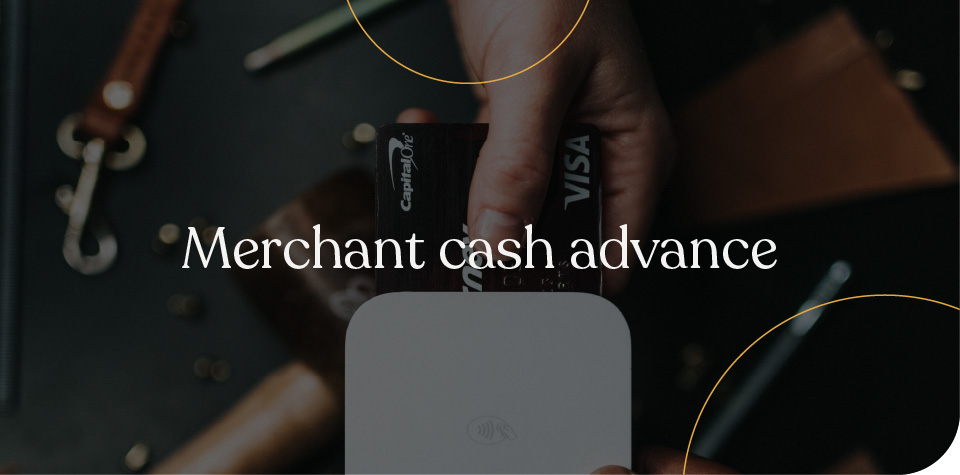
Merchant cash advances are a unique source of financing for UK-based SMEs
Merchant cash advances are one the most innovative forms of alternative business finance.
Merchant cash advances allow businesses to use a card terminal for secure lending – great for those who don’t have assets but have sufficient customer card transactions.
A merchant cash advance is a form of financing that’s especially well-suited for a small company that takes debit and credit card payments from its customers.
The lender gives the company a cash advance, which it repays using a percentage of its customers’ card transactions using a terminal.
A merchant cash advance is also sometimes called a business cash advance, and it is sometimes referred to as a revenue loan, a turnover loan, or revenue-based financing.
We have access to the best merchant cash advance lenders in the UKLet us get you your next merchant cash advance
What is a merchant cash advance?
Merchant cash advances are essentially a type of unsecured loan. You borrow money from a provider, then you pay it back.
A merchant cash advance is only available to businesses that have high volumes of credit and debit card transactions. Instead of paying monthly fixed repayments, you borrow a lump amount and then pay the merchant cash advance via a percentage of future customer card payments.
Your repayment plan can be flexible to accommodate trading fluctuations. You will be able to pay your merchant cash advance loan faster if you are busy. You will pay less if you trade slower than normal.
How does a merchant cash advance work?
Merchant cash advances charge a fixed rate, less than the interest rate you would get on a traditional loan. This rate is known as the factor rate. It is usually displayed in decimal numbers such as 1.2 and 1.4.
The factor rate is the multiplier used by lenders to calculate how much you’ll need to repay. If you borrowed a merchant cash advance at a factor rate 1.4, the fees would be £4,000. This makes a total of £14,000.
Your lender will determine the factor rate based on your business sector and your business performance and health.
What is the purpose of a merchant cash advance loan?
There are some restrictions regarding who can apply for a merchant cash advance loan, but there are no restrictions as to what the loan can be used for. You could use your merchant cash loan to:
- Cover a cash flow shortfall due to seasonal trading
- Train or hire staff
- Buy stock
- Purchase new equipment
- Expand your business premises
- Spend money on advertising and marketing
What are my options for a merchant cash advance
Your business must meet the requirements of the lender to be eligible for a merchant cash loan. These criteria will include but are not limited to:
- Being based in the UK and Ireland
- A merchant account (i.e. accepting debit and credit cards payments)
- You can be a sole trader, partnership, or limited company
- Trades must be completed within a certain time frame (this may vary depending on the lender)
- Processing a minimum amount of card sales per month (this may vary from lender to lender)
A merchant cash advance is available based on monthly card sales. It is possible to obtain one even if your credit score is not good. If the lender considers you a high-risk customer, your credit score could affect your factor rate.
If you do not meet a lender’s start-up minimum trading period and card sales requirements, consider other sources of financing for start-ups.
Example of a merchant or business cash advance loan
Suppose you are eligible for a loan of £10,000 from a merchant cash advance lender at a factor rate of 1.2. The loan will be repaid with 10% of every future customer card transaction.
This is £12,000 plus the factor rate of 1.
£100 would be paid to you if a customer buys something from your store. £10 would be given to the merchant cash advance lender. This is because £100 times 0.10 (i.e. £100 multiplied by 0.10 (i.e. 10%) equals £10.
If you had a strong month at your till and were paid £15,000 in card payments, you would have repaid £1,500.
However, if your company had a slow month and took £2,000, then you would only have repaid £200.
Benefits of a merchant cash loan
- Merchant cash advance repayments will be based on a percentage of your monthly card sales and will increase or fall according to your business’s performance
- At the beginning of your agreement, you will be given the option to set the factor rate and percentage of monthly sales of cards
- Repayments are taken automatically
- To get a merchant cash advance, you don’t have to submit a business proposal
- To receive a merchant cash advance, you don’t have to provide collateral or assets
- This option is available to businesses with lower business credit scores
Disadvantages of a merchant cash advance
- A merchant cash advance can have a higher cost than other forms of business financing
- Only a portion of your monthly card sales will be eligible for you to borrow money
- This is only applicable if you process the majority of your transactions via credit or debit card
- Some lenders won’t work with certain card terminal providers
- If your business is a start-up you might not be eligible for a merchant cash advance
What do merchant cash advances look like?
An owner of a business can get cash immediately after a merchant business advance company approves it for a set amount. The fees are then repaid using a percentage from future revenue.
Merchant cash advance repayments may be structured as a percentage card sale or as fixed withdrawals from bank accounts.
1. Percentage of debit/credit card sales
This is the traditional method of structuring an MCA. The UK merchant, cash advance provider, subtracts a percentage (usually around 10%) from debit and credit card transactions until the amount has been repaid fully.
Merchant cash advances are not like other business loans. They have no typical repayment terms. Because the repayment schedule is based upon sales, this is why it is so open-ended. The repayment terms can range from 3 to 18 months. The higher your credit card sales, the faster you repay the advance.
2. Fixed withdrawals from bank accounts
Another way to repay your merchant advance is by withdrawing funds directly from your business bank account. Fixed repayments are made from your account every day or week, and are not tied to sales. Fixed repayment amounts are calculated based on monthly revenue estimates.
This repayment arrangement allows you to determine exactly how long it will take to repay the advance based on the amount borrowed. It is best suited for businesses that don’t heavily rely on credit and debit card sales.
Merchant cash advance vs bank loan
A cash advance is a great way to get funding for a registered business in England. It can also be used as a new source of funding as opposed to traditional bank loans.
Why?
- Access is faster than a loan and applications are approved in days
- Contrary to a bank loan and a business plan
- Once you’re up and running, changing your bank or provider is not necessary
- Payback is not based on fixed loan repayments like a bank
- Banks will always require collateral. For a merchant cash advance, this is not necessary
What can the cash advance be used for?
It depends on what stage of the business you are in, but almost all businesses require additional funding. You can use the advance to pay operating expenses and capital expenses.
Marketing costs, for example, are all possible uses of the advance. The following are some examples of cash that businesses might require:
- Renovation
- Expanding
- Inventory
- Equipment repairs/upgrade
- Website development
- Funding for emergencies
- Marketing/training
- Trade shows
- Product launches
Merchant cash advances can be described as a low-risk, easy way to obtain short-term capital for your business. This is only one option for business owners looking to finance their businesses. You might also be interested in other products, such as asset financing, a short-term business loan, or a revolving debt facility.
Different lenders have different eligibility requirements. They will generally review your credit report as a Limited Company and your personal credit report as a sole trader.
You must have a steady business and a good payment history to get approved. Lenders want to see that you have been in business for some time, are able to pay your bills, keep up with loans, and have a steady turnover.
How do I compare merchant cash advance lenders?
To compare merchant cash advance lenders, start your application below now online:

